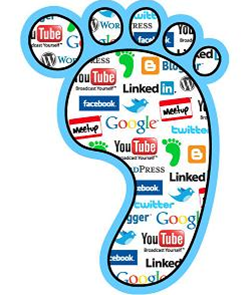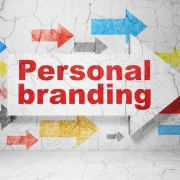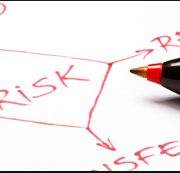6 Tips to Protect Your Personal Data, Including Your Digital Exhaust
How much thought do you give to your personal information that you share on line? With identity theft on the rise along with scammers of all sorts looking for ways to find our personal data weaknesses, we should be thinking about this a lot more than we do. We need to always be thinking about our personal data, including our digital exhaust.
There are many types of personal information that we leave behind, and it would seem that we do so willingly. Sometimes we give up a significant amount of information just to get something for free. Sometimes we put the information out there willingly not realizing what we are doing. For example, I once had a coworker who not only put his birthday on LinkedIn, but he put his wedding anniversary and his home mailing address. This is a lot of personal information given up completely voluntarily and is known as Digital Exhaust. Digital exhaust is the information that we willing give out and leave behind when on line and downloading information, doing online purchases, playing games, adding details to our online profiles, etc.
At best, these little tidbits about our personal life tell people we know more about us. Worse case scenario, we have left behind so much information that we have basically given a full profile of who we are, where we live, what we do and what we like to do. This is digital exhaust and many of us don’t even know that it exists. In fact, there are many less than ethical people out there who will work to aggregate our digital exhaust and use it against us. So, let’s get to the list:
1. Is Free Really Free?
Think about the offers that excite and intrigue you. Often times they offer something in return for you signing up for “something”. But, like my mother always says, there’s no such thing as a free lunch. By filling out a form and/or downloading information, you are often asked for some personal details. In and of itself, this is not a bad thing. Most reputable companies do this and they respect your data. But, if you are asked for more than your title, telephone #, email, company name and information like this, think twice. Ask yourself why they would need your birthdate for example?
2. You Want My Credit Card Why?
Ever get offered a free trial for something only to have them ask for your credit card info? This is a personal preference, but anyone that offers me something as a trial at no cost is NOT getting my credit card information. If I choose to continue using the product/service, then and only then will I give that information. Technology today is a wonderful thing and if they offer something for free for a month, they can easily cut me off at that point if I don’t pay.
3. Birthdays, Anniversaries and Marital Status
Sure it is nice to get a Happy Birthday from someone, but why do you need to put this on your LinkedIn profile? How many places is that “really” relevant. At least on Facebook you can hide it. For profiles like LinkedIn, and I love LinkedIn so don’t get me wrong, but you are already willingly giving your workplace, the names of your schools, publications you have been in and much more. Why in the world would you also give this additional information and make it public.
4. Accepting Connection Requests
Certainly people want to build out their LinkedIn connections, but there is something to be said about quantity over quality. Again, this is a case where you need to devise your own strategy to determine who you will connect with and who you won’t. I recently wrote about LinkedIn becoming the next tool for spammers. I noticed that I was receiving a significant amount of connection requests from people that had no reason to connect with me. With one google search, I realized my instincts were correct. These requests were coming from people who were not being forthright with who they are. I didn’t accept. I have since learned that their accounts have been disabled. Good job LinkedIn!
5. Public Profiles and Privacy Settings
Most social networks offer some level of privacy. Always check and know your settings. For example, to limit the exposure of my detailed information being used, my Public Profile for LinkedIn does not tell the entire story. I chose what details would be public. It is a great feature!
6. Apps
You know the saying: “there’s an app for that” and there probably is. I would caution people on Facebook for example when playing games and using various apps. While not all are like this, there are apps that require you to give up access to all your personal information, your connections, email and contact information, etc. While you might choose to give up “your” personal information, your friends will appreciate you more if you don’t introduce them to risks!
These are just a few ways to help keep you safe while online. In this case you are in the drivers’ seat and you can ultimately decide what you do and don’t release. Anything that you would add to this list that I haven’t?
Want to learn even more? Sign up for our newsletter at TaylorMade Solutions (insert “newsletter” into inquiry box)





Leave a Reply
Want to join the discussion?Feel free to contribute!